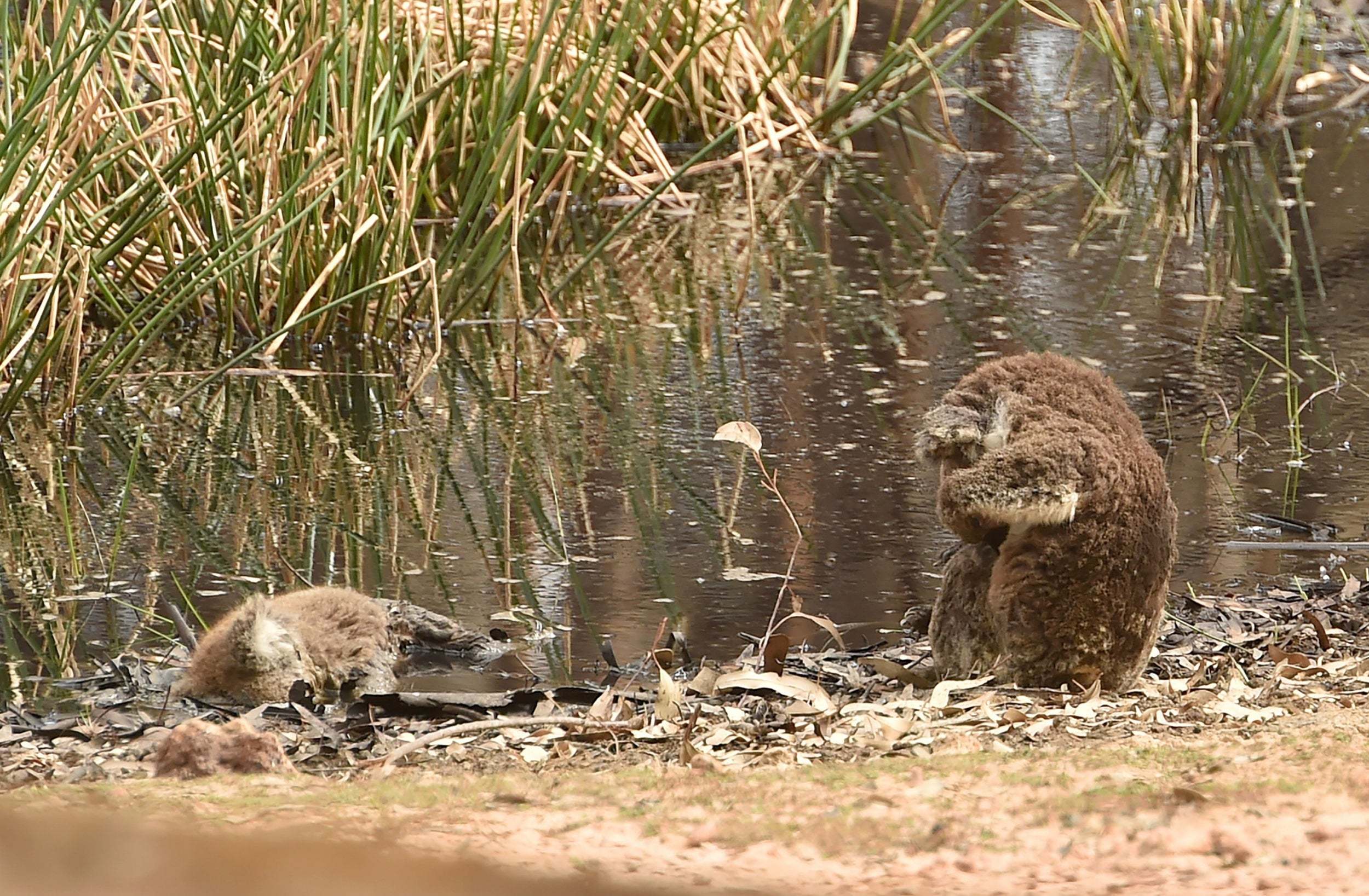Australia wildfires: Koala pictured 'grieving' over dead friend
'We are finding them sitting on the ground totally shut down – all too often with other corpses nearby,' rescuer says
Your support helps us to tell the story
From reproductive rights to climate change to Big Tech, The Independent is on the ground when the story is developing. Whether it's investigating the financials of Elon Musk's pro-Trump PAC or producing our latest documentary, 'The A Word', which shines a light on the American women fighting for reproductive rights, we know how important it is to parse out the facts from the messaging.
At such a critical moment in US history, we need reporters on the ground. Your donation allows us to keep sending journalists to speak to both sides of the story.
The Independent is trusted by Americans across the entire political spectrum. And unlike many other quality news outlets, we choose not to lock Americans out of our reporting and analysis with paywalls. We believe quality journalism should be available to everyone, paid for by those who can afford it.
Your support makes all the difference.A heart-breaking photo of an exhausted koala appearing to grieve for a fellow koala who lay dead nearby has encapsulated the trauma faced by wildlife affected by Australia’s devastating bushfires.
The photo was captured by the Humane Society International (HIS) as rescuers searched the fire-ravaged Kangaroo Island for animal survivors.
HSI disaster response chief Kelly Donithan said the scene had become familiar since teams began their searches in Flinders Chase National Park and timber plantations.
The wildfires have so far scorched through 40,000 square miles (104,000 square kilometres) of brushland, rainforests and national parks throughout Australia, killing by one estimate more than a billion animals.
Wildlife organisations fear about half of the 60,000-strong koala population living on the island have not survived, as almost half the island was razed.

Ms Donithan told ABC News: “The image of the koala by the water near the body of another koala is particularly heartbreaking.
“The survivors have little to no energy reserves left and we are finding them sitting on the ground totally shut down – all too often with other corpses nearby.”
She added the surviving koala was rescued and taken to an emergency rehabilitation centre at the Kangaroo Island Wildlife Park.
There are also fears for populations of rare and endangered species on the island such as brush-tailed rock wallabies and dunnarts that may have perished in the fires.
Biologists have begun looking for survivors from these species in the hope there may be enough left to rebuild their populations.
Kingsley Dixon, an ecologist at Curtin University in Perth, said: “I don’t think we’ve seen a single event in Australia that has destroyed so much habitat and pushed so many creatures to the very brink of extinction.
The population of brush-tailed wallabies before the fires started were estimated to be as few as 15,000 left in the wild. They resemble miniature kangaroos with long floppy tails and prefer hiding near large boulders.
Ecologist Guy Ballard, from the University of New England in Armidale, said when his team first started searching for survivors, they only came across dead animals and burnt tree stumps.
“It was just devastating,” he said. “You could smell dead animals in the rocks.”
But the team found hope in some surviving wallabies and trekked through ash-covered Oxley Wild Rivers National Park with water and food to lure other survivors out to be rescued.
Last week, thousands of kilograms of carrots and sweet potatoes were air-dropped throughout New South Wales to help feed surviving animals in Operation Rock Wallaby.
The Australian government announced Monday that it was spending A$50 million (£38.4m) on emergency wildlife rescue efforts and habitat recovery.
University of Sydney ecologist Chris Dickman estimated more than a billion animals have been killed as a result of the fires so far, including tens of millions of possums and small marsupials known as gliders.
He said: “The implications for some species are pretty grim. If we can’t protect them here, they’re gone. No one else has them.”

Join our commenting forum
Join thought-provoking conversations, follow other Independent readers and see their replies
Comments